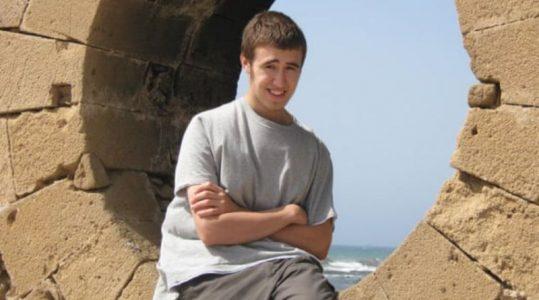
Suspected British ISIS terrorist could face repatriation to Canada
Suspected Islamic State fighter Jack Letts – nicknamed “Jihadi Jack” by the British media – is likely to be repatriated to Canada rather than the UK, sources have told the Guardian.
The 23-year-old dual national was included in a recent agreement between Ottawa and the Kurdish administration in north-eastern Syria to take home an estimated 11 Canadian citizens being held by its forces, several Kurdish and Canadian sources said.
The Canadian efforts to get Letts out of Syria were a stark contrast to UK government policy on repatriating Isis suspects and their families. Kurdish authorities in Qamishli say it has not responded to requests for cooperation.
Including Letts, four British men are believed to be held in Kurdish and US-run facilities in Syria.
The UK has repeatedly said that it cannot help British citizens in places where it has no consular support – although earlier this year it attempted to extradite two surviving British members of the terror cell known as the “Beatles” from Qamishli to the US after stripping them of their UK citizenship.
The British government has not said whether Letts’ British citizenship has been revoked. “As all UK consular services are suspended in Syria … Anyone who does travel to Syria, for whatever reason, is putting themselves in considerable danger,” a Foreign Office spokesperson said.
Unlike other western countries, Canada’s government maintains that citizens captured in Isis territory in Syria and Iraq have the right to return home to face questioning or criminal charges.
Kurdish officials said they had engaged in promising negotiations to hand over an estimated 11 citizens, including women, children and at least one highly ranked fighter.
The unprecedented operation to address the legal limbo facing the 520 foreign Isis fighters and around 2,000 women and children in Syrian Democratic Forces (SDF) custody was welcomed by the Kurds, who say they cannot detain foreigners indefinitely.
However, after sending documentation so that the SDF could prepare exit permits for the departing Canadians, Ottawa recently backed out of the agreement “without giving reasons”, according to Abdel Karim Omar, co-chair of the Kurdish foreign affairs committee in Qamishli, the Kurdish administrative centre in Syria.
While Global Affairs Canada did not comment on the deal or why it was put on ice, Canadian extremism expert Amarnath Amarasingam said the repatriation effort may have been derailed by a backlash sparked by the popular New York Times podcast, Caliphate.
A Canadian known as Abu Huzaifa al-Kanadi, who says he carried out two execution-style killings for Isis in Syria before returning home to Toronto in 2016, is heavily featured in the investigative series.
The fact that the 23-year-old was not picked up by counterterrorism services for questioning before the podcast aired caused a scandal for Canada’s Liberal government, which was accused of failing to keep the country safe.
“The government probably fears it would be political suicide to allow any more Isis suspects to come home before the next elections in 2019,” Amarasingam said.
Despite the delay, Canada has made more headway in dealing with the diplomatic headache than most.
Working with Syria’s Kurds is tricky because although the Qamishli-based administration is a major Western ally in the fight against Isis and controls around one quarter of the country, it is not a state actor. Only around 60 foreigners with Isis links have been repatriated so far: to the US, Russia, Indonesia and Sudan.
In Letts’ case, his parents Sally Lane and John Letts – themselves facing criminal charges of funding terrorism for trying to send their son money to escape Raqqa – say that the UK has left him to “rot and die” in Syria.
Letts officially called Canadian diplomats from prison earlier this year and begged for their help to escape alleged ill-treatment by the SDF, echoing earlier requests made by his parents. John Letts was born in Canada, and the family holds dual UK-Canadian citizenship.
Letts, a Muslim convert from Oxford, travelled to Syria in 2014 after dropping out of his A-levels and telling his parents he was going to spend three months in Kuwait learning Arabic.
Source: Guardian





